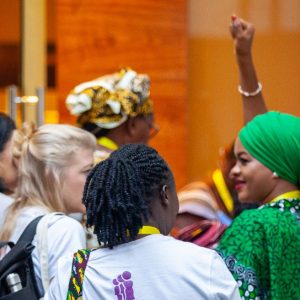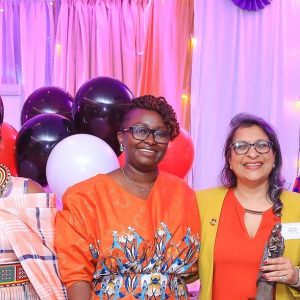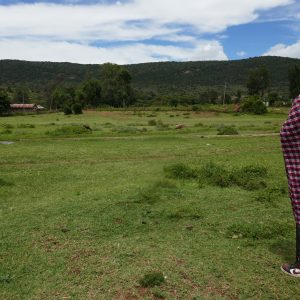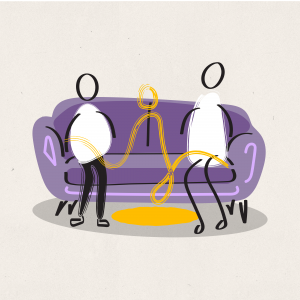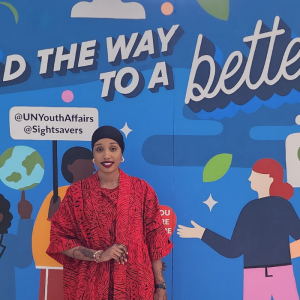Women belong in all places where decisions are being made. It shouldn’t be that women are the exception.
This is the much quoted phrase from the beloved Ruth Bader Ginsburg; the trailblazing lawyer and justice of the Supreme Court of the United States who sadly passed away this week. She was an icon of women’s leadership who broke down barrier after barrier for the advancement of gender equality, and a personal hero of mine.
Bader Ginsburg’s assertion points to a hopeful vision that with women’s leadership at all levels, we can exceed the limits set by an unequal society and take up positions of leadership where there is a dearth of diverse representation.
This is a vision we must be especially motivated to achieve for girls and women of colour who face multiple oppressions, and especially so with the ongoing barriers posed by the global pandemic.
As you will see from Orchid Project’s forthcoming policy briefing on female genital cutting (FGC) and COVID-19 (sign up to receive it to your inbox), there is a ‘shadow pandemic’ of increased gender-based violence around the world brought on by a variety of factors. This includes an estimated rise in rates of cutting, with UNFPA predicting that a further 2 million girls will be cut globally by 2030 because of COVID-related programme disruptions, and media reports of increasing numbers of girls being cut.
For girls who have been cut, it is not solely the physical impacts of the practice that impede their lives. Once a girl is cut, she may be married as a child; she may stop going to school; have a child before her body is mature; she may not be able to fully participate in the economy. Her potential has been hindered before she has even reached adolescence, with most girls in the majority of countries affected cut before their fifth birthday.
FGC is a child rights issue and we cannot achieve gender equality without ending the cut. Just as we cannot see issues that predominantly impact on the lives of women and girls represented and prioritised without women taking positions of leadership and power at all levels: locally, regionally, nationally and globally. COVID has shown us how crises disproportionately impact women and girls. It has also shown us how women and girls are stepping up to lead, because they are the ones most affected by these issues.
Orchid’s new paper recommends that to continue working to end FGC in the face of a pandemic, funding supporting women-led organisations at the grassroots level is imperative.
Melinda Gates recently noted that, by a wide margin, “most heads of state are men…three-quarters of the world’s national lawmakers are, too”. And COVID-19 responses have disproportionately affected women and girls negatively in terms of healthcare, gender-based violence and sexual and reproductive health care. Melinda’s advice is that all leaders “now have a stake in ensuring that women are involved in decision-making around COVID-19 response.”
I, and the evidence, strongly agree.
Orchid are privileged to partner with brilliant, tenacious women who lead at various levels to end female genital cutting. I reached out to some of them to hear why they think having women in positions of leadership is so vital to recovery, “building back better” and accelerating the movement to end FGC in this new context.
Wairimu Munyinyi Wahome is the Executive Director of the Coalition on Violence Against Women (COVAW), a national non-profit in Kenya working to end FGC and violence against girls and women. In response to COVID-19, they had to adapt their programming to prevent increases in gender-based violence.
As a leader faced with the pandemic, Wairumu said:
When women are not at the table, they get served after-thoughts…In the case of gender-based violence and FGC, women best understand the implications and are likely to be more committed in the pursuit of change. Women in leadership help challenge stereotypes and act as role models for women and girls but most important, as change agents for men who have subjective views on women in leadership. Female leaders in the communities where we work have the ability to identify and integrate with the communities they work with and provide servant leadership- the kind that is in sync with the community.
Bethel Tadesse, Director of Hidden Scars, is based in the UK and, in response to COVID, set up weekly support calls with grassroots activists working to end violence against women and girls. She went on to set up the grassroots platform Hidden Scars and run the “Africa-led Movement Webinars”, mostly recently with guest speaker, UK Special Envoy for Girls’ Education, Baroness Liz Sugg.
Bethel told me:
If you want gender equality, and you want to end violence against women and girls, you have to have men and women leading the change. For women to step into leadership roles, especially working at the grassroots, they need to be funded. They need support. Also we need more collaboration, not competition. If you want to be in competition you should be in business. In our sector we need to be partners. No one can end it on our own.
Aarefa Johari & Priya Goswami, Co-Founders of Sahiyo, India, and Mumkin*, an Artificial Intelligence- driven app developed in response to COVID, which they said created a “dire need for safe spaces for women, even online”. They continued:
There is a stark gender imbalance globally on work distribution at home and in every aspect of daily life. Women were the hardest hit in the lockdown with more responsibilities of the home and family, in addition to their work. It is therefore urgent and necessary to create spaces for women to speak up for themselves and lend their voice to dissent against patriarchal expectations. When a woman speaks up for herself, not only does she champion herself and her story, but she also sets an example for leadership by women, for women.
Neneh Rugiatu Koroma, Founder of Amazonian Initiative Movement is working to end FGC in Port Loko district, Sierra Leone. A partner of Purposeful, who set up the COVID-responsive Global Resilience Fund, she told us:
Women as the primary caregivers of sick people in the family and community should be seen leading the fight to stop the spread of COVID in our communities and countries. When I say women, I mean rural women who make the bulk of the country’s population. We must educate them and allow them to take leadership. They must own the process if we want to succeed.
Dr Rewan Youssif is a medical doctor and Orchid Project Trustee, has been working with CARE Egypt during the COVID lockdown to address sexual and gender-based violence (SGBV) among Syrian and African refugees in Egypt. Rewan said:
The famous quote by Ruth Bader Ginsburg, “Women belong in all places where decisions are being made”, reflects my ideas on women in leadership positions. From personal experience, especially when working with survivors or vulnerable populations to SGBV, I’ve seen that women, should be more empowered to convey the severity of SGBV and respond accordingly through the provision of effective and gender sensitive solutions to the issues faced by their gender.
Christine Ghati Alfons is the Founder of community-based organisation Safe Engage Foundation, in Kuria, Kenya, and an Orchid Project Fellow. Through her organisation she’s been leading to provide necessities to the community, including food and sanitary towels for girls and is continuing to advance the movement to end FGC in her community. She said:
It is important for women to take leadership roles because they bring balance in an unbalanced society. Today, the majority of positions are dominated by men; women are good leaders too. I’m a leader in my community, and in the time of pandemic, this is very important because women are acting as role models, showing girls in the community that despite the barriers, they can lead too.
One thing is clear. Only with women in positions of leadership, making decisions about their own lives and representing the interests of women and girls, can we end female genital cutting, and achieve gender equality. There is clear evidence that women leaders are applying more inclusive, transparent and collective approaches to crisis situations, which in turn contributes to addressing imbalances of power.
In 2014, UNICEF said that girls were a third less likely to be cut than they were three decades prior. In these COVID times, and with the advent of the Generation Equality year in 2021, it is ever more pressing to prioritise such issues. We must ensure there is not a roll-back on the progress made by so many leaders, activists, survivors and allies; women leading the movement. As my colleague Wairimu from COVAW so aptly put it: “Women have the ability to lead and need to be leading on issues that affect them the most. Leadership, decision-making and change go hand in hand.”
And hand-in-hand, we will create change to end FGC in a generation.
Subscribe to receive the COVID & FGC Policy Brief to your inbox
*The Mumkin app will launch on October 15th on Google Play.

